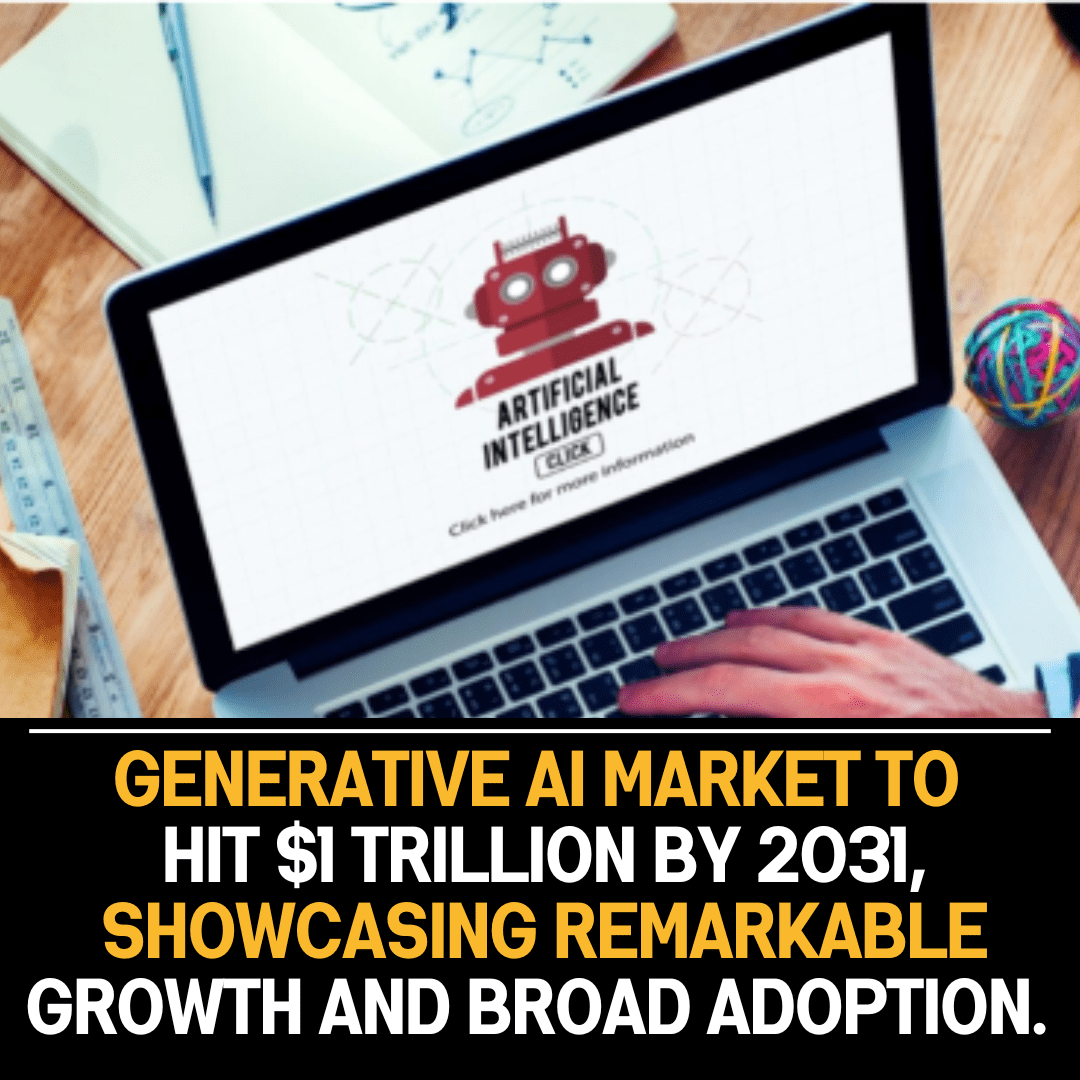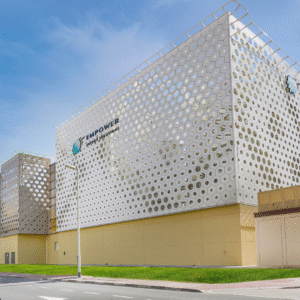The generative AI market is on the brink of explosive growth, with projections indicating a remarkable surge to a staggering $1 trillion by 2031. This extraordinary forecast underscores the rapid and widespread adoption of generative artificial intelligence technology, highlighting its pervasive influence across diverse industries and sectors.
Generative AI, a subset of artificial intelligence that involves machines producing content, has witnessed a transformative journey, evolving from niche applications to becoming a driving force behind innovation and efficiency. The projected market value of $1 trillion by 2031 reflects the immense confidence in the technology’s potential to reshape industries and redefine how tasks are accomplished.
The primary catalyst behind the projected growth is the increasing integration of generative AI across various sectors. From healthcare and finance to manufacturing and entertainment, industries are recognizing the transformative power of AI in enhancing processes, decision-making, and overall efficiency. The technology’s ability to generate content autonomously, including images, text, and even code, contributes to its broad applicability.
One of the key drivers behind this surge is the continuous advancement in generative AI algorithms. As machine learning models become more sophisticated and capable of understanding complex patterns, the applications of generative AI expand, enabling solutions to more intricate problems. This dynamic evolution ensures that generative AI remains at the forefront of technological innovation, driving its adoption in both established and emerging sectors.
The healthcare industry, for instance, benefits from generative AI’s capabilities in medical image analysis, drug discovery, and personalized treatment plans. In finance, AI-driven algorithms enhance risk assessment, fraud detection, and trading strategies. The manufacturing sector leverages generative AI for process optimization and predictive maintenance, contributing to increased operational efficiency.
The widespread adoption of generative AI also brings forth challenges and considerations related to ethics, privacy, and accountability. As the technology becomes integral to decision-making processes, discussions around responsible AI deployment and ethical considerations gain prominence. Striking a balance between innovation and ethical considerations will be crucial in ensuring the sustainable growth and acceptance of generative AI technologies.
The projected market value of $1 trillion signifies not only the economic significance of generative AI but also its transformative potential. The technology is poised to catalyze advancements that were once deemed futuristic, contributing to the development of smart cities, autonomous systems, and personalized digital experiences.
In conclusion, the generative AI market’s projected growth to $1 trillion by 2031 showcases the technology’s unprecedented impact on various industries. As generative AI continues to evolve and find new applications, its transformative influence on how businesses operate and innovate is set to redefine the technological landscape, positioning it as a cornerstone of the digital future.









